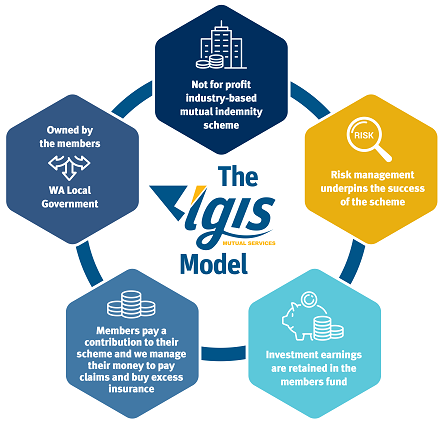
There's less than eight weeks to go before we say goodbye to 2023/24 and the vast majority of members have completed their declarations for the 2024/25 membership year. The improvements to the online renewal declaration have been well received by members, in particular the collaborative functions allowing multiple staff to be involved in the process and the ability to import data from last year.
We are analysing the information received, considering claims performance, and negotiating with our reinsurance partners to secure terms for 2024/25. The range and quality of data collected enables the wide-ranging exposures of the sector to continue to be supported by indemnity providers, ensuring the Scheme can appropriately respond to members claims.
Scheme performance for 2023/24
The Scheme's performance is a critical factor in setting membership contributions. 2023/24 is predicted to finish slightly ahead of budget, ensuring the ongoing delivery of sustainable long-term protection to the Western Australian local government sector. The year has not been without challenges, especially in workers' compensation, but the Scheme's prudent fiscal management has ensured a good position for the sector.
This year our mutual ethos has shone through – collaborating with members to develop resources and provide guidance to navigate changing legislation and obligations.
Financial results
LGIS projects a modest financial surplus for 2023/24. This will be a pleasing result, given that the Scheme reported a small surplus of $0.9 M last year, and a deficit of $7.26 M the previous year.
Analysis by the Scheme's actuaries, Scyne, recommended that we increase our retained capital, and as such the Board has decided that any small surplus for 2023/24 will be held in reserve. LGIS must maintain capital to make sure we're in a sound position to respond to changes in the legislative and claims landscape.
Investments are a large part of our income and they have performed well this year, making up a large component of this year's surplus. The sector's claims performance remained on the same trajectory as 2022/23 experiencing pressure across several lines, particularly workers' compensation.
Portfolio performance
The WorkCare portfolio remains in the spotlight with rising claims costs despite steady claim numbers. A significant consideration in our decision to increase capital retention is the new Workers Compensation and Injury Management Act 2023 (WA) which substantially increase potential costs for each claim; these include increased claimant entitlements and tougher settlement conditions.
These legislative changes occur at a time when the sector's workers' compensation claims performance is already under pressure. We are forecasting a third consecutive deficit for the WorkCare portfolio for 2023/24.
It is vital that in 2024/25 the sector work with LGIS to reduce the number and cost of claims. Members need to work to cooperatively with LGIS to effectively manage injuries and facilitate timely return-to-work. Members will need to be flexible and ensure that appropriate accommodations and adjustments are provided to support the return-to-work process. Those with poor claims performance will see this reflected in their 2024/25 WorkCare contributions.
Our Property and Motor portfolios have also experienced escalating claims costs with supply chain delays and replacement costs growing faster than inflation. Forecasts indicate that the construction and automotive sectors will continue to be constrained in the coming year with labour force challenges and supply chain delays.
Total claims cost for Property are the result of a high volume of small or average claims (all impacted by inflation). This contrasts with previous years which have experienced large outlier events that have dramatically impacted the overall result of the portfolio. The lack of any major Property claim events will support a positive renewal.
There is an upward trend in the number of Liability claims, and we have several large and complex matters afoot, which dampen performance. There are diverse areas in the spotlight which include the development and certification process, management of public assets particularly playgrounds and trees, and bushfire management activities.
Across all portfolios, members should be turning their mind to these areas, developing controls, and implementing them. Over the last two years LGIS has developed reporting systems to support members in actioning recommendations from risk assessments. In addition, our Continuous Improvement Programme supports members in reviewing their policies, procedures, and management practices for key outdoor assets such as trees and footpaths.
2024/25 Membership
Membership terms will be presented mid-June. In the meantime, if you have any queries about your LGIS membership please talk to your account manager.
